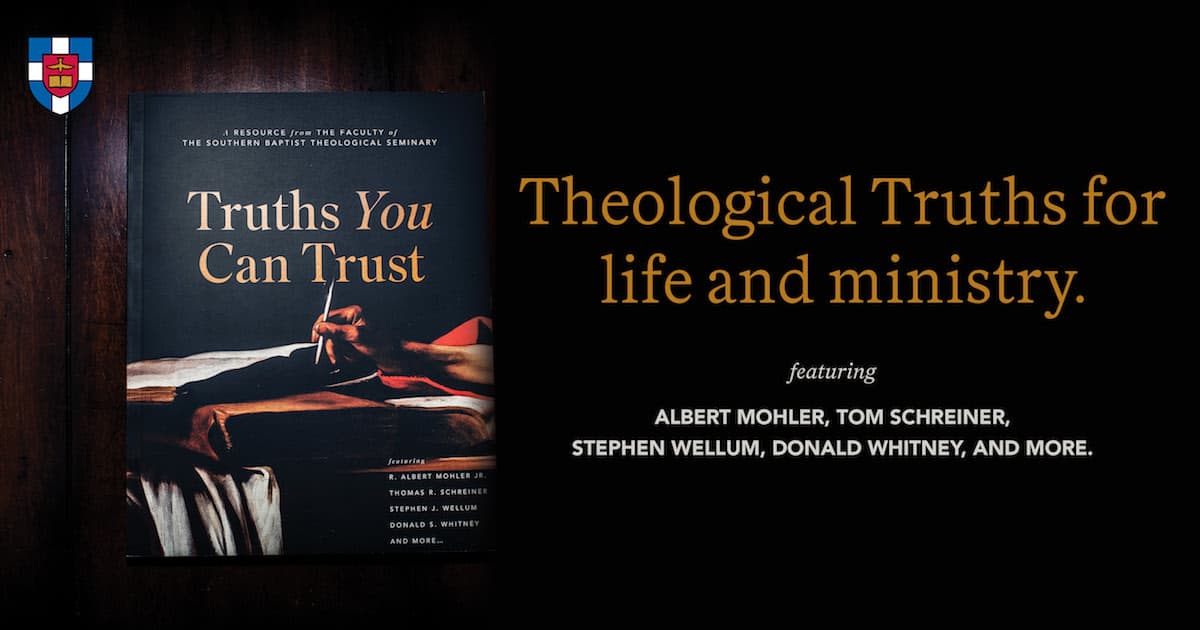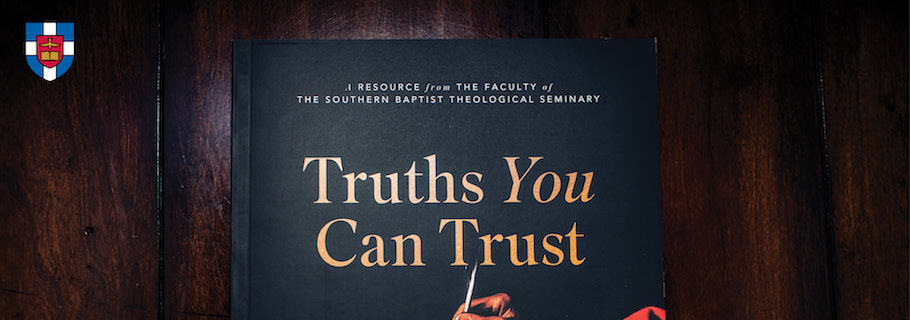This week the blog is sponsored by Southern Seminary and was written by R. Albert Mohler Jr, who invites you to download your free copy of Truths You Can Trust.
Not too long ago, I was able to visit with two of the leading authorities on theological education in the world. Neither of these figures is an evangelical Christian, and both are heavily invested in mainline Protestant theological education through seminaries and divinity schools. The most interesting aspect of our conversation had to do with the amazing realignment of enrollment in theological education in the United States. Put simply, the mainline Protestant seminaries are collapsing, and the only real enrollment strength in theological education today is to be found among evangelicals, and among Southern Baptists in particular.
Of course, the most important factor here is theology. We can draw a direct line from the theological liberalism that captured the mainline schools to the collapse of their enrollment. The irony, not missed by theological conservatives, is that the promise of theological liberalism is to save Christianity by surrendering its essential truth claims.
Diogenes Allen, for decades a professor at Princeton Theological Seminary, described the situation by using the metaphor of a raft. In his illustration, the church is a raft driven by the currents of a river. In his argument, so long as the water is calm, the raft can take on more and more freight. The freight represents doctrines and moral teachings. So long as the water is smooth, the raft can take on more and more doctrine and stay afloat. But, he warned, the modern age is not calm water. The raft (the church) is not staying afloat in the rapids of the modern age, with all its anti-supernaturalism and secularization. In such waters, he advised, the church needs to start jettisoning freight — abandoning doctrines that are just too costly in the modern age.
We can see how this argument won the day among liberal Protestants. When faced by adversity and intellectual challenge, when the culture took a turn, they just turned with the culture. The mainline seminaries and divinity schools led in this effort. But — to no surprise — they are left with very few students, and many of the students they do have are not headed for ministry in the local church.
 Just a few decades ago, The Southern Baptist Theological Seminary found itself in just a theological position. In 1993, when I became the school’s president, we were told that if you took a seminary and returned it to its confessional integrity if you took the fullness of truth and made it central to the school’s identity and commitments, and if you required the seminary to teach and stand for the complete and utter trustworthiness and truthfulness of the Word of God, you would have no students, no donors, and no friends.
Just a few decades ago, The Southern Baptist Theological Seminary found itself in just a theological position. In 1993, when I became the school’s president, we were told that if you took a seminary and returned it to its confessional integrity if you took the fullness of truth and made it central to the school’s identity and commitments, and if you required the seminary to teach and stand for the complete and utter trustworthiness and truthfulness of the Word of God, you would have no students, no donors, and no friends.
Well, to the glory of God, Southern Seminary is now the largest accredited seminary in the world. It’s important to note that the seminary’s current theological fidelity is not a new phase in the school’s history. Rather, it is a return to the intent of those who founded the school in 1859. From the beginning, Southern Seminary was to be marked by its commitment to the Abstract of Principles, the statement of faith that was to guide the school’s teaching.
When faculty members sign the Abstract, they are saying that they will teach in accordance with and not contrary to everything contained within it. When they sign that document, it’s not that they sign it merely as a symbolic act. It’s not that they sign it merely saying they understand this is what the institution represents, or that they agree to teach within these theological boundaries, but that they confess this is the faith they believe and want to teach. Our faculty members not only teach the truth, but they believe and embrace it.
Nothing could be more dangerous than a theological seminary that is not clearly and explicitly and continually and always grounded in truth. The absolute determination of Southern Seminary is that we will continue to deliver a theological education of the highest quality and highest caliber of conviction — without any compromise whatsoever in doctrine or substance.
In Truths You Can Trust, you will see this determination. You will see that determination as you see the Southern Seminary faculty on display. You will see why this school has long been trusted for truth.
Whatever circumstance you’re in, remember that all of God’s people are called to know the truth. Our God is a God of truth. Indeed, the sum of his Word is truth (Ps 119:160), and the Lord Jesus Christ tells us that he himself is the truth (John 14:6). Consider downloading your own free copy of this resource and I pray that as you read this book, you will experience the answer to Jesus’ prayer: “Sanctify them in the truth; your word is truth” (John 17:17).










